Related Research Articles

Olga Neuwirth is an Austrian contemporary classical composer, visual artist and author. She gained fame mainly through her operas and music theater works, which often deal with topical and decidedly political themes of identity, violence and intolerance.
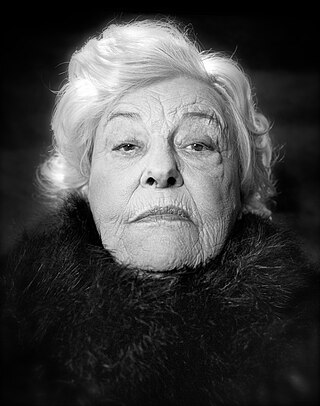
Marianne Hoppe was a German theatre and film actress.

Judith Hermann is a German author. She has published several books of short stories and her first novel was published in 2014. She is a leading figure of the Fräuleinwunder group of women writers.

Bibiana Beglau is a German actress.

Katharina Thalbach is a German actress and stage director. She played theatre at the Berliner Ensemble and at the Volksbühne Berlin, and was actress in the film The Tin Drum. She worked as a theatre and opera director.
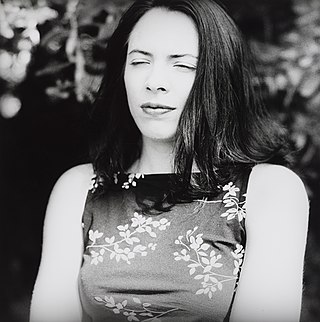
Zoë Jenny is a Swiss writer. Her first novel, The Pollen Room, was published in German in 1997 and has been translated into 27 languages. She lived in London. In 2008, she married Matthew Homfray, a British veterinary surgeon and pharmaceuticals consultant. Her newest novel, The Sky is Changing, was her first written in English and was published by Legend Press in June 2010. She was awarded the Aspekte-Literaturpreis.
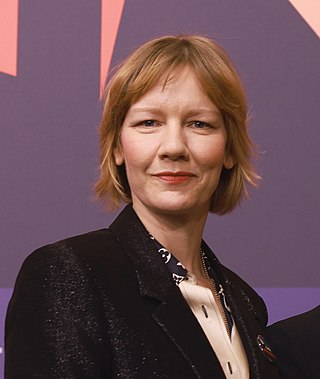
Sandra Hüller is a German actress. She has starred in German, Austrian, American, British and French films. She played Anneliese Michel in Hans-Christian Schmid's 2006 drama Requiem, for which she won the Silver Bear for Best Actress, and a troubled daughter in Maren Ade's 2016 comedy Toni Erdmann, for which she won the European Film Award for Best Actress.

Nora Marie Tschirner is a German film actress, musician and former television and radio presenter.
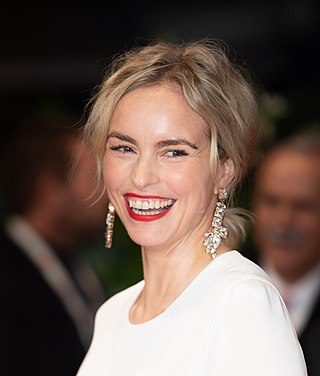
Nina Hoss is a German stage and film actress. She is known for her collaborations with director Christian Petzold in films such as Barbara (2012) and Phoenix (2014). In addition, she also performed roles in The White Masai (2005) and The Audition (2019), and Pelican Blood (2020). She has also starred in the American TV series Homeland (2014–2017), The Defeated (2020), and Tom Clancy's Jack Ryan (2022).
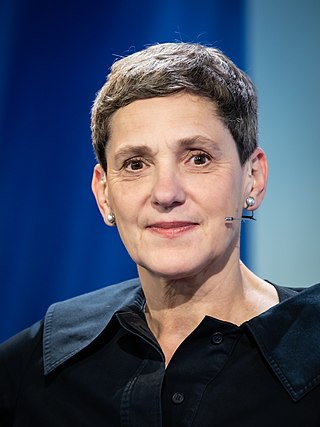
Felicitas Hoppe is a German writer. She received the Georg Büchner Prize in 2012.
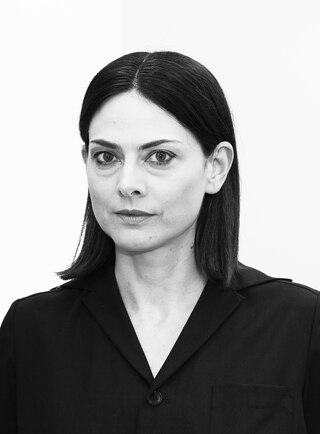
Bettina Pousttchi is a German artist of German-Iranian descent. She currently lives in Berlin. She has worked in photography, sculpture, video and site-specific installation.

Jenny Erpenbeck is a German writer and opera director, recipient of the Independent Foreign Fiction Prize.

Eva-Maria Hagen was a German actress and singer. She was known as the "Brigitte Bardot of the GDR" but was banned from performance for political reasons.

Judith Schalansky is a German writer, book designer and publisher.
The Villa Aurora at 520 Paseo Miramar is located in Pacific Palisades, Los Angeles and has been used as an artists' residence since 1995. It is the former home of the German-Jewish author Lion Feuchtwanger and his wife Marta. The Feuchtwangers bought this Spanish-style mansion in 1943 for only $9,000, the annual salary of a school teacher. The house was a popular meeting place for artists and the community of German-speaking émigrés. Lion Feuchtwanger wrote six of his historical novels in this house: Der Tag wird kommen, Waffen für Amerika, Die Jüdin von Toledo, Narrenweisheit oder Tod und Verklärung des Jean-Jacques Rousseau, Jefta und seine Töchter, and Goya oder der arge Weg der Erkenntnis.
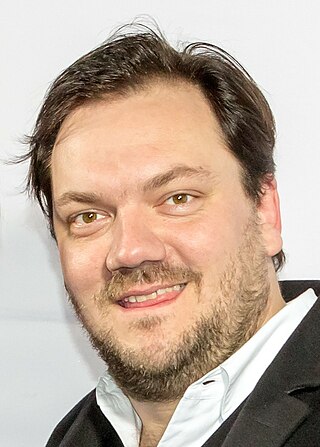
Carsten Johannes Marcus Hübner is a German actor. He appeared in more than eighty films since 2003, including Magical Mystery or: The Return of Karl Schmidt and The Good Neighbour. Also known on TV for Transporter, Polizeiruf 110, crime series Post Mortem in 2007/2008.
The Lessing Prize of the Free State of Saxony is a German literary award. It was founded in 1993 by the Government of the Free State of Saxony and is awarded every two years. It consists of a main prize, which honours outstanding achievements in the spirit of Gotthold Ephraim Lessing, especially in the field of literature, literary criticism and the theater. This prize is worth 20,000 euros. In addition, two further "promotional prizes" are awarded, which seek to publicly recognize and promote promising beginnings in these fields. These prizes are each worth 5,500 euros.

Ulrike Krumbiegel is a German actress. She has performed in more than 100 film and TV productions. In her early career, she performed in East German cinema and theatre. After the re-unification of Germany, her career continued with appearances in crime series such as Tatort, and the ZDF series SOKO München. She has also continued to appear in the theatre, featuring in plays by Berthold Brecht, Henrik Ibsen and William Shakespeare.
Annette Jahns was a German operatic mezzo-soprano and contralto, and opera director, based at the Semperoper in Dresden. She appeared at international opera houses and festivals, with a focus on contemporary music including world premieres. She taught at the Hochschule für Musik Carl Maria von Weber, Dresden.

Bettina is a chamber opera with music by Friedrich Schenker to a libretto by Karl Mickel. The topic is the writer Bettina von Arnim and her relationship with Karoline von Günderrode. The work is described as an "opera for one actress (mezzo-soprano), children's choir, tape and ensemble". Written in 1982, it was premiered at the Theater im Palais in Berlin in 1987, and was published by Breitkopf & Härtel.
References
- ↑ Barone, Joshua (15 August 2021). "Review: 'The Threepenny Opera' Returns Home, Liberated". The New York Times. ISSN 0362-4331 . Retrieved 13 September 2022.
- ↑ "Schriftstellerin Judith Schalansky: "Mein Herz schlägt für die Zukurzgekommenen"". Der Tagesspiegel Online (in German). ISSN 1865-2263 . Retrieved 13 September 2022.
- ↑ Schalansky, Judith (7 May 2019). "Ungeheuerliche Hetze" . Retrieved 7 May 2019– via Sueddeutsche.de.
- ↑ «Wir sind schon da». in: SZ-Magazin, 4 February 2021.